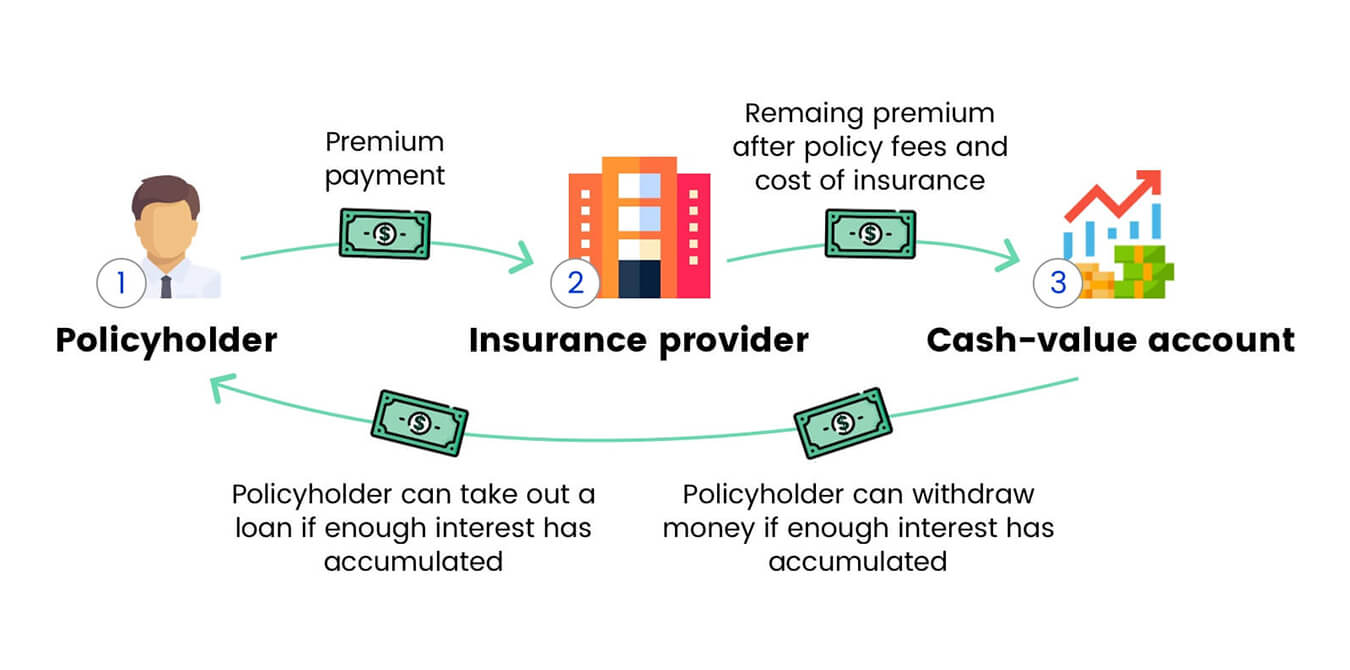Home>Finance>Whose Life Is Covered On A Life Insurance Policy That Contains A Payor Benefit Clause?


Finance
Whose Life Is Covered On A Life Insurance Policy That Contains A Payor Benefit Clause?
Published: October 15, 2023
When it comes to life insurance policies with a payor benefit clause, find out whose life is covered and how this can impact your financial planning.
(Many of the links in this article redirect to a specific reviewed product. Your purchase of these products through affiliate links helps to generate commission for LiveWell, at no extra cost. Learn more)
Table of Contents
Introduction
Life insurance is an essential financial tool that provides protection and financial security for individuals and their loved ones. It offers peace of mind by ensuring that financial obligations, such as mortgage payments, education expenses, and daily living costs, are covered in the event of the policyholder’s passing.
Within the realm of life insurance policies, there are various clauses and provisions that can be included to customize coverage according to individual needs. One important provision that can be incorporated into a life insurance policy is the Payor Benefit Clause.
In this article, we will delve into the concept of a Payor Benefit Clause, exploring its significance, who it covers, and the advantages it offers. We will also discuss key considerations before including this clause in a life insurance policy.
Understanding the intricacies of a life insurance policy, particularly the Payor Benefit Clause, can help policyholders make informed decisions and ensure comprehensive coverage for their loved ones.
Understanding Life Insurance Policies
Before diving into the specifics of the Payor Benefit Clause, let’s first establish a basic understanding of life insurance policies. Life insurance is a contract between an individual (the policyholder) and an insurance company. The policyholder pays regular premiums, and in exchange, the insurance company provides a sum of money, known as the death benefit, to the designated beneficiaries upon the policyholder’s death.
Life insurance policies come in different forms, including term life insurance and permanent life insurance. Term insurance provides coverage for a specified period, such as 10, 20, or 30 years. Permanent insurance, on the other hand, offers coverage for the policyholder’s entire life, as long as premiums are paid.
Life insurance policies can be tailored to meet specific financial objectives. They can provide income replacement, fund education expenses, cover outstanding debts, or serve as an inheritance for future generations. Additionally, policies may offer various riders or additional benefits that can be added for enhanced coverage.
It is important to note that not all life insurance policies are the same. The terms, conditions, and provisions of a policy can vary significantly between insurance companies. Therefore, it is essential to carefully review and understand the details of a policy before purchasing it.
Now that we have a basic understanding of life insurance policies, let’s delve into the Payor Benefit Clause and its role in providing additional protection to policyholders.
What is a Payor Benefit Clause?
A Payor Benefit Clause, also referred to as a Premium Waiver Rider, is an optional provision that can be added to a life insurance policy to provide additional financial protection. This clause is designed to ensure that the policy remains in force even if the policyholder becomes unable to pay the premiums due to a qualifying event, such as disability or death.
With a Payor Benefit Clause, if the policyholder, who is typically the person responsible for paying the premiums, becomes disabled or passes away, the insurance company waives the future premium payments for the policy. This means that the policy will continue to provide coverage without requiring any further premium payments.
Essentially, the Payor Benefit Clause acts as a safeguard for the policyholder and their beneficiaries, ensuring that the coverage remains intact during a difficult time when the policyholder may no longer be able to provide financial support.
It is important to note that the inclusion of a Payor Benefit Clause typically comes with an additional cost, as it offers an extra layer of protection. The premium amount will depend on various factors, including the age and health of the policyholder, as well as the coverage amount and duration of the policy.
Now that we understand the purpose and function of a Payor Benefit Clause, let’s explore whose life is covered under a life insurance policy with this provision.
Whose Life is Covered on a Life Insurance Policy?
A life insurance policy typically covers the life of the policyholder, who is the individual purchasing and owning the policy. The policyholder is responsible for paying the premiums and has control over the policy, including the ability to name beneficiaries and make changes to the coverage.
However, when a Payor Benefit Clause is included in a life insurance policy, the coverage extends beyond just the life of the policyholder. In addition to the policyholder, the lives of other individuals can also be covered under the policy.
The primary beneficiary of a life insurance policy is usually the spouse, partner, or child of the policyholder. If the policyholder passes away, the death benefit is paid out to the designated beneficiary/beneficiaries. This ensures that the financial needs and security of the surviving loved ones are protected.
With a Payor Benefit Clause, the coverage expands to include not only the policyholder but also the insured dependent or dependents. Typically, the insured dependent is a child of the policyholder. If the insured dependent suffers a qualifying event, such as disability or death, the premiums for the policy are waived, allowing the coverage to continue uninterrupted.
For example, suppose a parent purchases a life insurance policy with a Payor Benefit Clause and names their child as the insured dependent. If the parent becomes disabled or passes away, the insurance company will waive the premium payments, ensuring that the policy remains in force to provide financial protection for the child.
It is essential to carefully review the terms and conditions of the Payor Benefit Clause to understand who is considered an insured dependent and how they are covered under the policy. Different insurance companies may have varying definitions and requirements for including insured dependents in the coverage.
Now that we have an understanding of whose life is covered under a life insurance policy with a Payor Benefit Clause, let’s explore the importance and benefits of including this provision.
Importance of Naming a Payor
When considering a life insurance policy with a Payor Benefit Clause, it is crucial to carefully choose and name a payor. The payor is the individual whose premiums will be waived in the event of a qualifying event that triggers the clause.
Naming a payor serves several important purposes:
- Continuity of Coverage: By designating a payor, you ensure that the policy remains in force even if you, as the policyholder, are unable to make premium payments due to disability or death. This ensures that your beneficiaries will receive the intended death benefit, providing them with financial security and stability.
- Protecting Loved Ones: Naming a payor is especially important if you have dependents who rely on your financial support. By choosing a payor, you create a safety net for your loved ones, ensuring that the policy continues to provide the intended coverage even if you are not able to personally maintain the premium payments.
- Financial Peace of Mind: Knowing that someone else will take over the responsibility of premium payments in case of your inability to pay provides you with peace of mind. It alleviates concerns about the policy lapsing or losing coverage that is essential for your family’s financial well-being.
- Flexibility and Control: By naming a payor, you retain control over who will take over the premium payments if needed. This allows you to choose a responsible and trustworthy individual who will ensure the policy remains active and continues to provide protection to your loved ones.
It is important to note that the payor does not have to be the insured individual or the policyholder themselves. In fact, it is common for parents to name themselves as the payor when purchasing a life insurance policy that covers their children.
When naming a payor, it is essential to consider their financial stability, responsibility, and willingness to assume the responsibility of premium payments. Open communication and discussion with the potential payor are crucial to ensure they understand their role and are willing to fulfill it if the need arises.
Now that we understand the importance of naming a payor, let’s explore the benefits that a Payor Benefit Clause offers to policyholders and their families.
Benefits of a Payor Benefit Clause
Including a Payor Benefit Clause in a life insurance policy can provide several significant benefits for policyholders and their families. Let’s explore some of these benefits:
- Continued Protection: One of the primary advantages of a Payor Benefit Clause is that it ensures the life insurance policy remains in force, even if the policyholder becomes unable to make premium payments due to a qualifying event. This means that the coverage and financial protection for the beneficiaries continue uninterrupted, offering peace of mind during difficult times.
- Financial Security: The Payor Benefit Clause acts as a safety net, enabling the policyholder’s dependents to receive the intended death benefit even if the policyholder is no longer able to provide financial support. This financial security can help cover living expenses, outstanding debts, and other financial obligations, providing stability and a foundation for the future.
- Flexibility and Customization: A Payor Benefit Clause can be customized to suit the specific needs of the policyholder and their dependents. It allows the policyholder to choose the insured individual who will be covered by the clause, typically a child or a dependent, ensuring that the coverage aligns closely with the policyholder’s objectives and priorities.
- Continuity of Premium Payments: The Payor Benefit Clause relieves the financial burden of premium payments from the payor in case of disability or death. This means that the policy remains active without requiring the payor to continue making premium payments, ensuring that the coverage remains intact and the beneficiaries receive the anticipated death benefit.
- Protection for Young Families: Payor Benefit Clauses are particularly beneficial for young families who have dependents relying on them for financial support. In the event of the policyholder’s disability or passing, waiving the future premium payments ensures that the family’s financial needs are met, providing a safety net during a challenging time.
It is important to review the terms and conditions of the Payor Benefit Clause before including it in a life insurance policy. Different insurance companies may have specific requirements and limitations, so it is crucial to understand the scope of coverage and any restrictions that may apply.
Now that we have explored the benefits of including a Payor Benefit Clause, let’s discuss some considerations to keep in mind before adding this provision to a life insurance policy.
Considerations Before Including a Payor Benefit Clause
While the Payor Benefit Clause can offer valuable benefits, there are several key considerations to keep in mind before including this provision in a life insurance policy:
- Additional Cost: Adding a Payor Benefit Clause to a life insurance policy typically comes with an additional cost. It is important to understand the impact on premiums and how it fits within your overall budget. Consider whether the benefits provided by the clause outweigh the additional premium expense.
- Qualifying Events: Review the policy terms to understand the specific events that would trigger the Payor Benefit Clause, such as disability or death. Make sure you are aware of the requirements that must be met for the clause to come into effect.
- Insured Dependents: Carefully consider whom to name as the insured dependent under the Payor Benefit Clause. This individual should be someone who would rely on the policy for financial protection if the policyholder becomes unable to make premium payments. Ensure that this person meets the definition of an insured dependent as outlined by the insurance company.
- Limits and Restrictions: Understand any limitations or restrictions that may apply to the Payor Benefit Clause. Some insurance companies may have age restrictions for the insured dependent or impose specific criteria for the disability or death event to trigger the clause. Review these details to ensure that the clause meets your specific needs and circumstances.
- Policy Review: Consider conducting a periodic review of the policy if a Payor Benefit Clause is included. As your life circumstances change, such as having more children or changes in financial responsibilities, it is essential to ensure that the coverage aligns with your current needs. Reviewing the policy periodically allows for necessary adjustments to be made.
It is strongly recommended to consult with a qualified insurance professional or financial planner who can provide guidance tailored to your specific situation. They can help you understand the implications of adding a Payor Benefit Clause and assist you in evaluating whether it is the right choice for your life insurance policy.
Now that we have discussed the considerations, let’s conclude our exploration of the Payor Benefit Clause and its significance in a life insurance policy.
Conclusion
The inclusion of a Payor Benefit Clause in a life insurance policy can provide invaluable protection and peace of mind for policyholders and their loved ones. This clause ensures that the policy remains in force even if the policyholder becomes unable to make premium payments due to a qualifying event, such as disability or death.
By naming a payor and adding this provision, policyholders can ensure continuity of coverage, financial security for their dependents, and flexibility in the face of unexpected circumstances. The Payor Benefit Clause acts as a safety net, allowing the policy to continue providing the intended coverage and death benefit even when the policyholder is no longer able to make premium payments.
When considering a Payor Benefit Clause, it is important to carefully review the terms and conditions of the clause, understand the additional cost involved, and choose a suitable insured dependent. Open communication with potential payors is crucial to ensure they understand their role and are willing to assume the responsibility of premium payments when needed.
Insurance policies and provisions can vary, so it is essential to consult with a qualified insurance professional or financial advisor who can provide personalized guidance based on your unique circumstances.
In conclusion, the Payor Benefit Clause is a valuable addition to a life insurance policy that offers extended protection and support for policyholders and their families. By considering the benefits, understanding the considerations, and making informed decisions, individuals can customize their life insurance coverage to meet their specific needs and provide optimal financial security for future generations.














